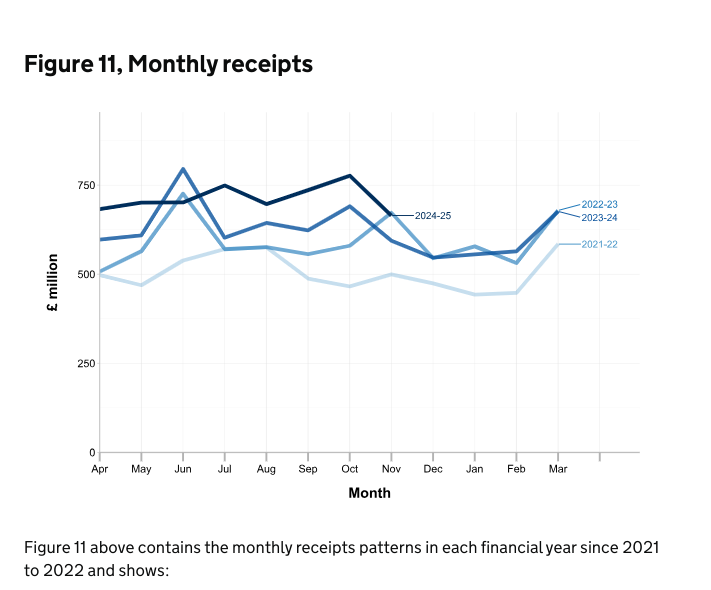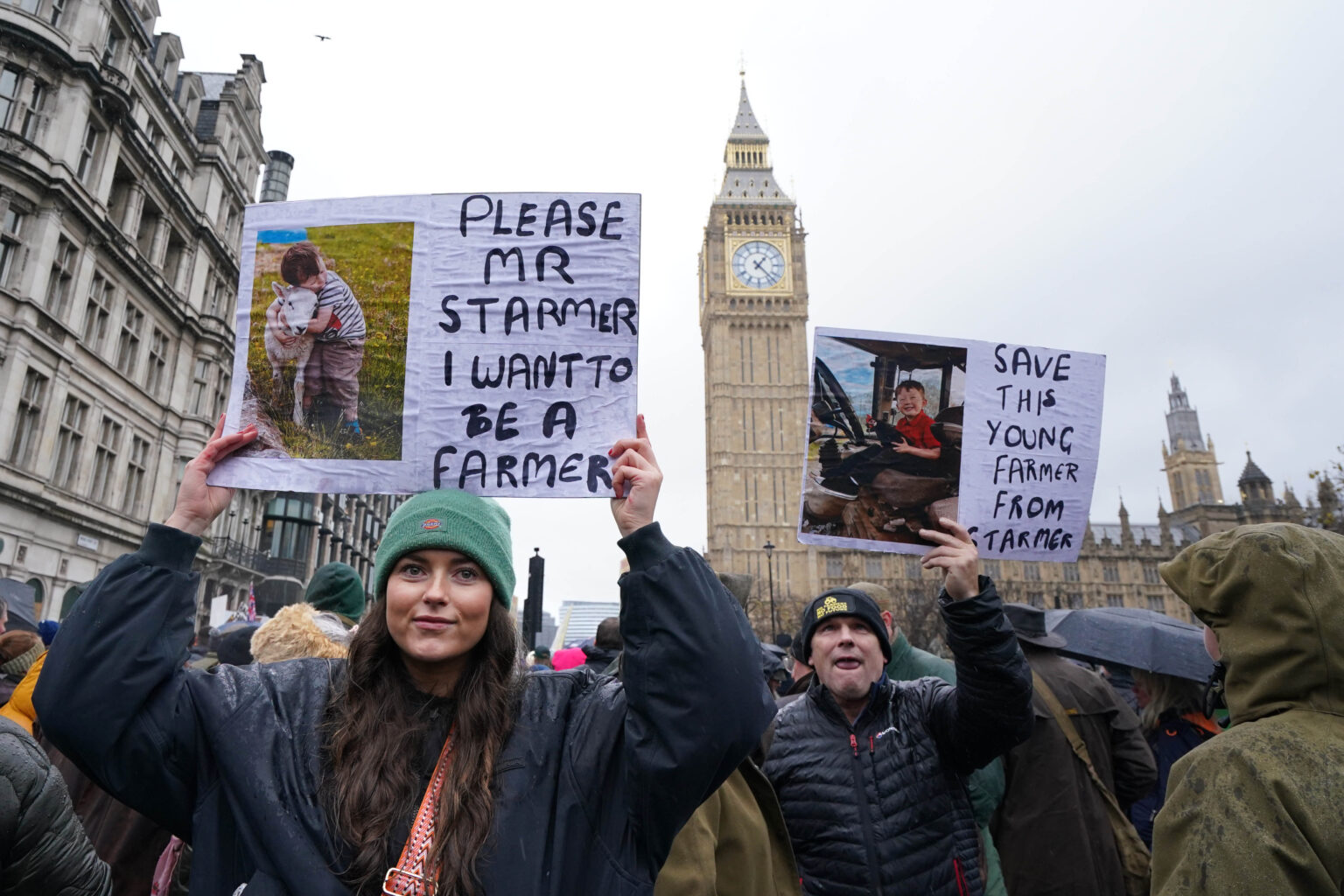| Updated:

The amount of inheritance tax (IHT) brought in by the government ticked up to £600m in November, as frozen thresholds pushed more estates into paying the tax.
“Christmas has come early for the government,” said Shaun Moore, tax and financial planning expert at Quilter, with the higher tax receipts allowing the amount the government borrowed last month to fall substantially.
There has been a significant increase in the amount of IHT brought in this year, with receipts from April to November 2024 totalling £5.7bn, £500m higher than in the same period last year.
“The continued rise in inheritance tax receipts reflects how frozen thresholds and increasing property and asset values are pulling more families into the IHT net,” said Richard Bate, head of private wealth at Weightmans.
“With the nil-rate band frozen at £325,000 and the residence nil-rate band at £175,000 until 2030, the scope for tax-free inheritance has been shrinking each year.”

Decades of rising property prices have also been a major driver of more families paying IHT.
While one in 20 estates are currently liable to pay IHT, government estimates suggest this will increase to one in 10 by 2030.
“With the IHT threshold frozen until 2030, coupled with pensions being added to the taxable estate from April 2027, the government’s coffers will get a substantial top-up in the coming years,” explained Quilter’s Moore.
Additionally, the government’s changes to tax breaks for farmers, AIM shares and Business Relief in the Autumn Budget are expected to boost its revenue substantially in the coming years.
This comes after thousands of farmers marched on Westminster last month, and then again earlier in December in protest against the government’s plans to impose inheritance tax on farms.
The Chancellor Rachel Reeves was criticised after she unveiled plans in the Budget to impose inheritance tax (IHT) on farms worth more than £1m from April 2026.
Play Video
Nicholas Hyett, investment manager at Wealth Club said: “Inheritance tax continues to be the gift that keeps on giving, at least as far as the government is concerned.
Yet again HMRC is increasing the amount that it’s milking from the estates of the recently deceased. Decades of rising property prices have been a major driver, pushing estates above frozen nil rate bands, and from April 2027 pension pots will fall into the taxman’s net as well meaning even more families are dragged into paying this most hated of taxes.”
Nor is that it.”
He added that “farmers are already in uproar about the new Tractor tax, and removing IHT relief on family businesses could mean the final nail in the coffin for businesses that would otherwise have been passed on through many generations. These changes will harm many, many businesses and do not reflect the governments objectives to get the economy moving.
All government’s need to balance short and long term priorities. Short term financial gain may add pounds in the pocket now, but could easily lead to long term pain if people are put off saving to support themselves in retirement and businesses decide not to invest or shut up shop altogether.”



